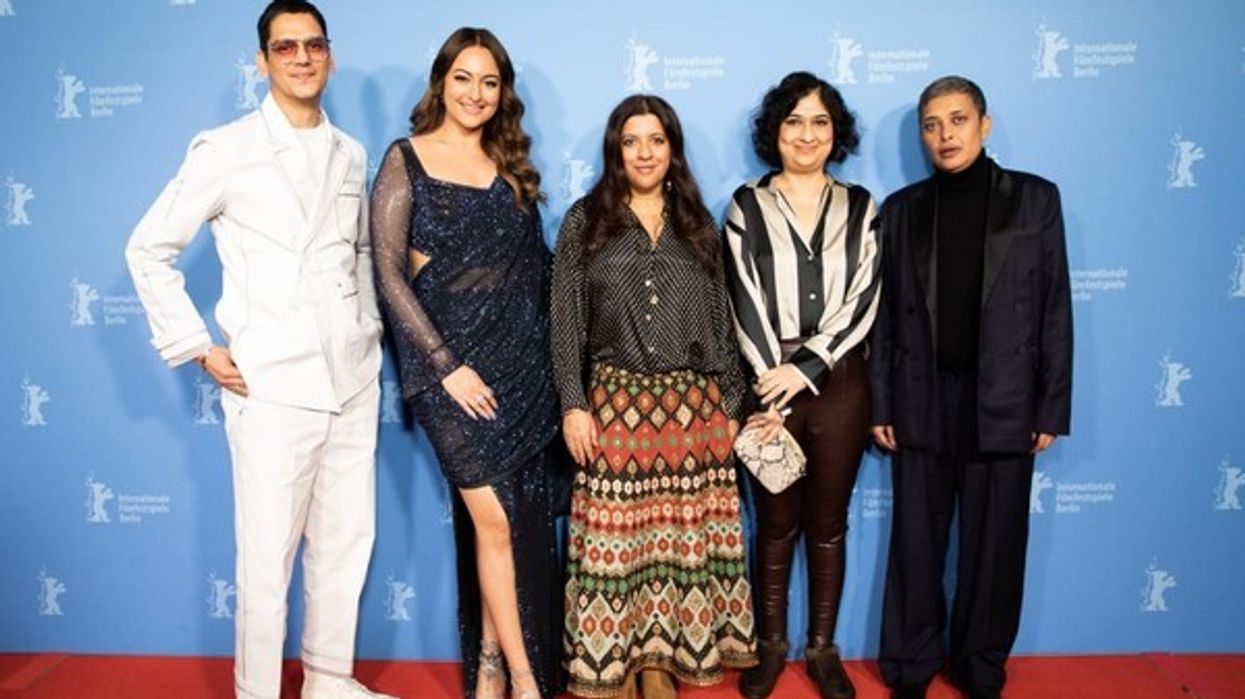Sonakshi Sinha and Vijay Varma along with the Dahaad team on Thursday attended the series premiere at the Berlin International Film Festival.
The crime drama competed against seven shows from across the globe and opened to a thunderous response from the attendees who witnessed the global premiere.
After Gully Boy in 2019, Dahaad will be Excel Entertainment & Tiger Baby's second showcase at the Berlinale.
In the picture, Sonakshi, Vijay Varma, filmmakers Zoya Akhtar, and Reema Kagti along with the team of Dahaad.
Sonakshi was seen dressed in a shimmery black shimmery outfit while Vijay Varma opted for a white suit.
Directed by Reema Kagti and Ruchika Oberoi, Dahaad also stars Gulshan Devaiah and Sohum Shah in the lead roles.
The show is set in a small, sleepy town in Rajasthan. The eight-part, slow-burn crime drama that follows Sub-inspector Anjali Bhaati (Sonakshi) and her colleagues at the local police station unravel a curious case.
When a series of women are mysteriously found dead in public bathrooms, Sub-Inspector Anjali Bhaati is tasked with the investigation. At first, the deaths appear to be clear-cut suicides but as the cases unravel, Anjali begins to suspect that a serial killer is on the loose. What follows is a riveting game of cat and mouse between a seasoned criminal and an underdog cop as she pieces together evidence before another innocent woman loses her life.
Dahaad is created under the banners Excel Entertainment and Tiger Baby.
The series is produced by Ritesh Sidhwani, Zoya Akhtar, Reema Kagti, and Farhan Akhtar.
Dahaad is slated to release in 2023.




